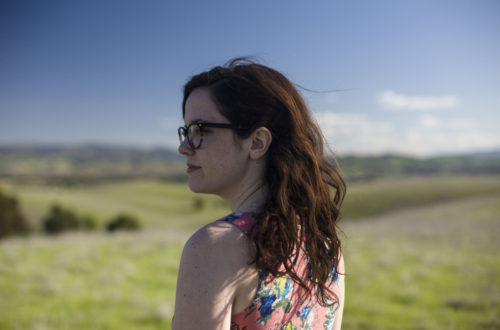
Letters to Emma #5
This is the fifth in a series of posts I plan to write about grief and my experience of it after the death of my husband Paul 4½ years ago. I will write each post in the form of a letter—a letter to Emma. I’m doing it this way for two reasons: visualising an audience of one will help me to write about what is still a difficult subject, and Emma was the one who first asked me to consider writing something on this topic. It’s my hope and prayer that by blogging about my personal experience of death and grief, I might ease the journey for someone else.
Dear Emma
I’m so grateful for your willingness to keep me company on this journey. Since I last wrote to you, I’ve thought a lot about that first year after Paul’s death, especially about how hard it was for me to accept that I had to keep on living. Living seemed to hold nothing but sorrow, hardship and unrelenting pain. I was dealing not only with my own grief, but also with my children’s and with other significant difficulties that they faced. For their sakes I won’t go into detail, but it was years before their circumstances began to improve. In fact, for a long time things only got worse.
Some days I just wanted to lie down and go to sleep, and never wake up. The burden of care and grief seemed to increase with each passing day. The only thing I could do to stop myself giving into despair was to call out to God; and in his unfailing kindness, he helped me. In desperation, I prayed that he would save me from drowning beneath the mounting waves of trouble and tears, that he would help me remember all that he had done for me in Jesus, and that he would keep me from self-pity. I did not want to sin in my grief, but I could not do this without his help. And even as I looked to him for help, I sensed him asking me this same question, over and over: ‘Do you trust me?’
People would tell me that they admired my courage, but Emma, I didn’t feel courageous at all. Most of the time it was all I could do to put one foot down in front of the other, just to get through the day. And then, once the initial crisis period had passed, I found myself tossed between two confusing extremes: the desire to break free and dare, and the desire to retreat and hide. But in my heart, I knew I could do neither. Whether I chose escape or withdrawal, I would be turning away from God; I would not be trusting in him. He was calling me to continue on the more difficult road, the narrow one, that wound its way between my contradictory yearnings for release and freedom, for shelter and security. If I sought these things anywhere other than in him, they would become my idols.
And then there were the days I learned to dread, when a grim numbness gripped my heart; days when I went through the motions of living, unable to feel anything at all. No tears would come. I felt as dry as a desert, as desiccated and brittle as grass in a summer heatwave. Even anger would have been better. But instead there was nothing. I would look at photos of Paul and feel dead inside, no sharp pang, no shaft of pain. And along with the numbness came an accusatory voice: ‘Why don’t you feel anything anymore?’ ‘You’re so unfaithful to Paul’s memory!’ ‘What would people say, if they knew?’ And after the voice came a terrible paralysing guilt. Had I stopped loving him?
One morning as I was searching for something in Paul’s wardrobe, I discovered a Valentine’s Day card still sealed in its plastic wrapper. He must have bought it for me on his final overseas business trip, because the price tag, in British pounds, was still stuck to the wrapper. The card was still sealed in the wrapper, because Paul died two days before Valentine’s Day.
As a couple we’d never really made much of February 14—it seemed far less important to us than other special days—so it was unusual for Paul to even buy me a card. So unexpected. As I blinked away tears, I turned the card over and found this printed on the back: “MESSAGE INSIDE READS: On Valentine’s Day and always … my heart belongs to you. I love you”.
Paul always chose cards that said exactly what he wanted to say, that used words he often found difficult to say to me out loud. He was so much more comfortable showing me how wholeheartedly he loved me, than he was actually telling me—something he knew about himself that I had learned to accept. For him to choose this particular card was so laden with significance; for him to die before he could give it to me, felt like a knife being plunged into my already-broken heart. But even this kind of pain seemed better than being unable to feel anything at all.
However, there were also times when I wanted Paul so desperately, when I ached for his physical presence so intensely, that I feared I was losing my mind. How I missed his body, his strength, his masculinity, his other-ness. More than a year after his death, one Sunday morning as I stood praying with others before church, my longing for Paul so overwhelmed me that I found the mere presence of the men in the room insanely and impossibly distracting. I could not concentrate on prayer because I was so attuned to their voices, their energy, their different-ness—the very things I had lost. I felt embarrassed, confused, and truly frightened by the sheer irrationality of it all.

This incident revealed a raw emotional power that made me acutely aware of my vulnerability, and I realised only God could help me to manage it. And yet, as much as I needed to shut and bolt that door, and as much as I needed to establish extra safeguards, I still needed to allow myself to grieve and to relate to others normally. It all seemed so impossible. But once again, I heard my heavenly Father’s question: ‘Do you trust me?’
Emma, I hope I haven’t made you feel uncomfortable as I’ve shared these things with you. I hope that by being honest I’m giving you a glimpse of what it’s like to find a way through this wild and unpredictable landscape called grief—a landscape of dark and confusing pathways, exhausting and difficult terrain, and stark, staring, incomprehensible plains.
There’s nothing remotely glamorous or heroic about this journey, but as hard and bewildering as it may be, God has never left me to navigate my way alone and in his faithfulness, he continues to keep his promise—that having begun a good work in me, he will carry it on to completion until the day the Lord Jesus returns (Phil 1:6). He continues to show me that I can trust him; that I need to trust him. Where else could I go?
Dear friend, I’m guessing there might be one or two more letters yet. Thank you for staying the course with me.
Featured image: Photo by Brittney Borowski | Lightstock.com




